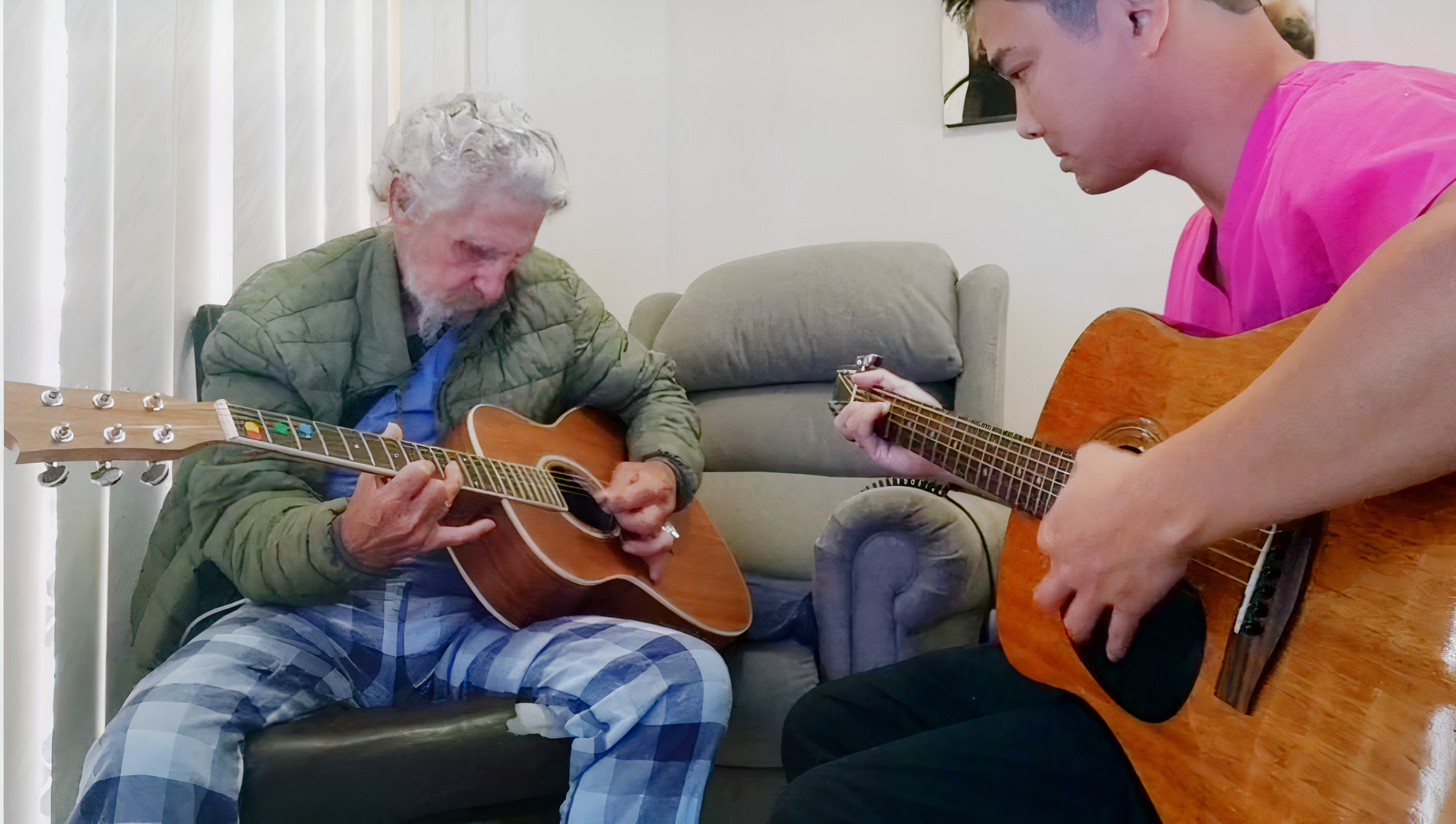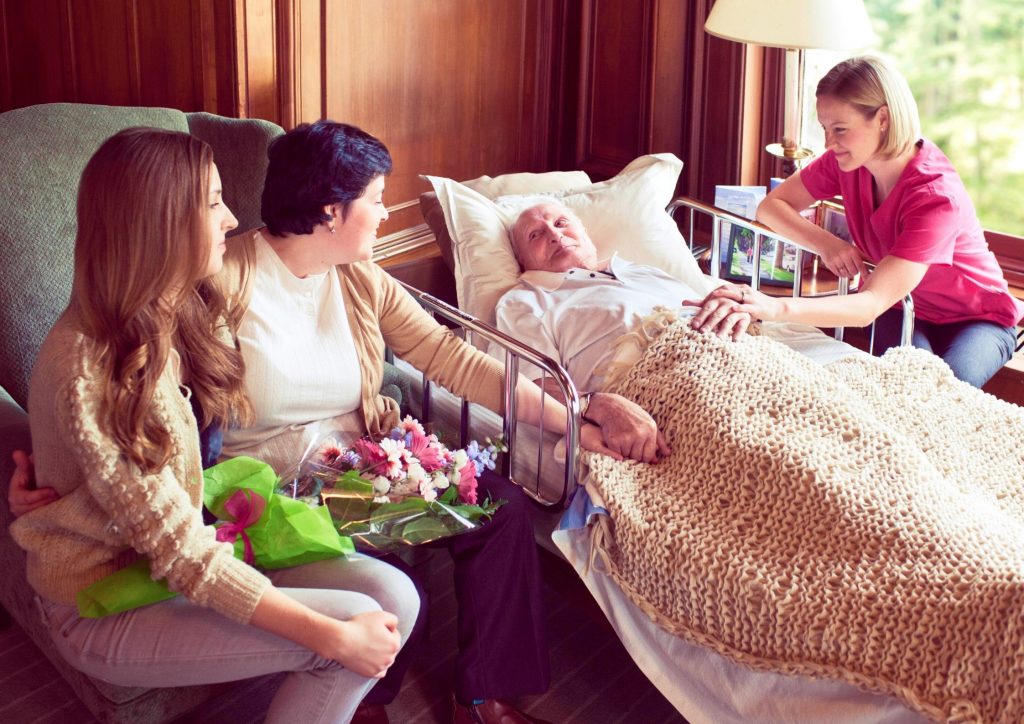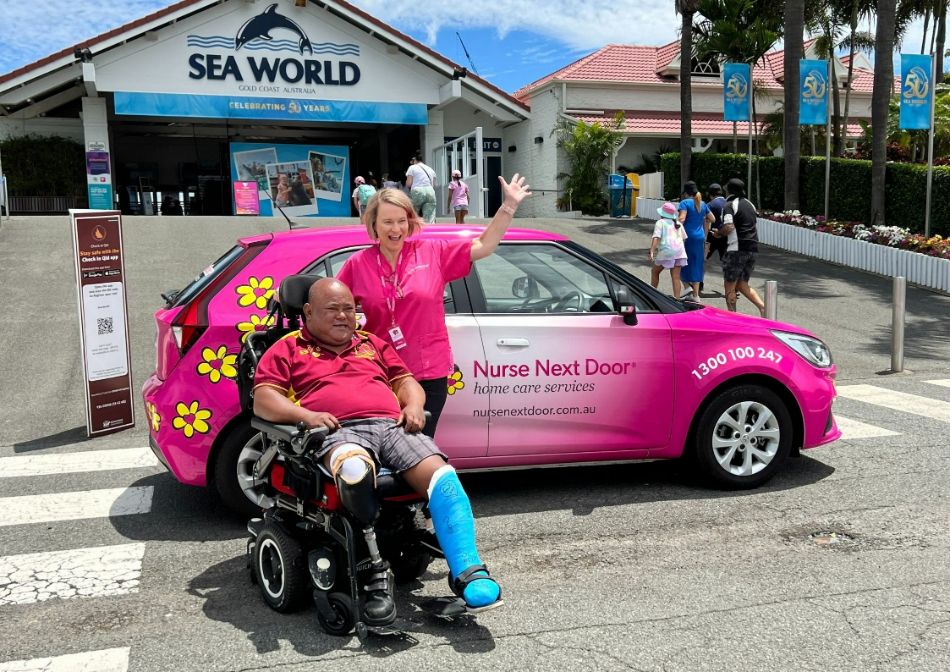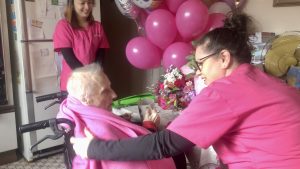What is Palliative Care?
“It was an honour and a privilege to be able to grant this man his wish to die at home, in the house he built with his own hands.”
Palliative Care means very different things to different people. For some, this will spark interest in having a career in this field. For others, it may highlight their loved one’s need for this type of care due to a serious illness, and may make that monster known as “grief” resurface because they have lost someone special to them while receiving palliative care.
For the majority of people who have lost a loved one, they will look back on the amazing care their loved one received during this time that ensured they were able to live their best life until the end.

The Goal of Palliative Care
Palliative care is commonly misunderstood. While many people who live with a life-limiting illness may choose to receive palliative care services in the later stages of their journey, it’s not just end-of-life care. In a lot of cases, palliative care begins quite soon after a diagnosis or during the early stages of treatment, and people can live for years while receiving palliative care.
Palliative care travels through different stages, with each stage offering a range of medical, emotional, spiritual and psychosocial support services:
- Stage 1: Developing and Implementing the Care Plan
- Stage 2: Adjusting the Care Plan & Preparing Emotionally
- Stage 3: Shifting to End-of-Life-Care
- Stage 4: Symptom Management, Emotional & Spiritual Care
- Stage 5: Bereavement, Support for Family Members, Loved Ones & Carers

The goal of palliative care is to improve the quality of life and make sure the person and their family are as comfortable as possible during this journey.
The reality is that palliative care aims to relieve the symptoms of a progressive disease that cannot be cured or terminal illness. It can be provided in many different environments including aged care facilities, hospitals, a hospice or most importantly at home.
Palliative care is for anyone who is living with chronic diseases or life-limiting illnesses that can not be cured.
Palliative care involves identifying and treating physical symptoms, as well as emotional, spiritual and/or social symptoms, which will differ on an individual basis.
Palliative Care can include:
- Pain relief
- Family Assistance
- Support for an individual’s emotional, social and spiritual concerns
- Support for an individual’s cultural beliefs
A recent survey by the Palliative Care Australia organisation found that while Australians acknowledge the importance of Palliative Care, they don’t fully understand the full scope of what Palliative Care is, nor do they want to talk about it.
In fact, the survey found that nearly 50% of Australians find the subject of death and planning for the end of their life too difficult to talk about. This could be because most people believe that talking about their preferences with their family for the end of their life, including palliative care, will upset them.
It is true that the needs of both our clients and carers are higher at this time, as palliative care requires an increase in services and support that extends all the way through to bereavement care.

The Palliative Care Team
Palliative care looks at each individual’s needs holistically catering to both their medical and non-medical needs, which can involve any of the following professionals:
- Treating health professional (usually a General Practitioner)
- Registered Nurse
- Caregivers
- Social Workers
- Religious Groups
- Counsellors or Psychologists
- Charities or Support Groups
- Other allied health professionals
There are many people and groups who are involved to ensure that each palliative care journey is personalised and as comfortable as possible.
Treating Health Professional
The Treating Health Professional, who is usually a General Practitioner, will be the central point of contact with an individual’s palliative care. They will work with specialist doctors and other allied health professionals to ensure the individual continues to experience the best quality of life possible.
Registered Nurses
A Registered Nurse will be provided to give ongoing treatment, if necessary, to ensure that the person receiving care remains comfortable during their palliative care journey.
Caregivers
A team of professional caregivers will visit as much as an individual needs, and wants, to ensure that their daily living is made easier and can last from a few hours to an around-the-clock team depending on the amount of care that is desired
Counsellors or Psychologists
Palliative care can be a very overwhelming experience for both the person receiving care and their families. Counsellors and psychologists are available to listen and offer guidance, as well as strategies to help manage any worries, anxieties or fears that the individual or their families may have.
Social Workers
Social workers can be available as a source of practical help acting as a guide who can help source key services including financial and family support.
Religious Groups
People who are religious or spiritual can also have religious groups as part of the palliative care team. Support will be available to help individuals attend services, and visits can also be organised by a faith leader to assist with the practice of faith at home as well while also offering emotional and spiritual support to family members.
Charities or Support Groups
Organisations such as The Cancer Council can help individuals and their families by providing additional specialist support services.

What Palliative Care Really Means
While all palliative care involves person and family-centred care for any person with an active, progressive or advanced disease, palliative care can mean different things to different people.
Our very own Care Designer, shares what Palliative Care means to her:
Recently I led a team of nurses and carers who provided beautiful care for a lovely older man who had chosen to pass at home. To see the joy such simple pleasures brought him; such as the view from his bedroom window, the sound of rain on the roof, the smiles generated by his dog visiting him regularly to check on him, as well as witnessing how easily his family could visit was so heartwarming.
He enjoyed fish and chips one night with his family, including his grandchildren. Two beautiful boys, aged 8 and 10 ,could visit him twice a day without any fear because they were visiting Pa in his home. They got to shake hands with him to say goodbye – a memory they will have forever. His wife could spend time with him without worrying about hospital parking or driving after a tough visit.
How was this all possible? The team I was proud to lead was in the background, giving pain relief and other medications required to minimise unpleasant symptoms, making sure he was comfortable and clean. We were able to answer the family’s questions and provide support to them without any fuss.
It was an honour and a privilege to be able to grant this man his wish to die at home, in the house he built with his own hands. Our staff have formed bonds with each other and with family members that will go on for some time. This is without a doubt the most wonderful care to have been involved in throughout my nursing career and I am so grateful to the family for allowing me to be a part of such a personal part of their family history.
Talking About Palliative Care
You will face many difficult decisions as you near the end of life and those decisions will include what kind of care you’d like to receive and where you’d like to receive this care. You will also consider who will make decisions about your care should you not be able to make decisions yourself.
In home care, our greatest goal is to support you and your family’s acceptance of your end-of-life care phase and to discuss any changing aspects of your care process openly and honestly. Most importantly, we guarantee you will never be alone. Your care team and other health care providers will remain in close communication and contact with you and your family at every stage to ensure this chapter is as comfortable and peaceful as possible.
There is no doubt talking about dying is hard. It is also important to talk about death so you can prepare well. Death is inevitable. The better prepared we are for our death, or the death of a loved one, the easier it will be on the ones we leave behind.
If you would like to learn more about palliative care and how we can ensure this passage of your life is as burden-free as possible, contact Nurse Next Door on 1300 600 247 or visit nursenextdoor.com.au to ask for care.
